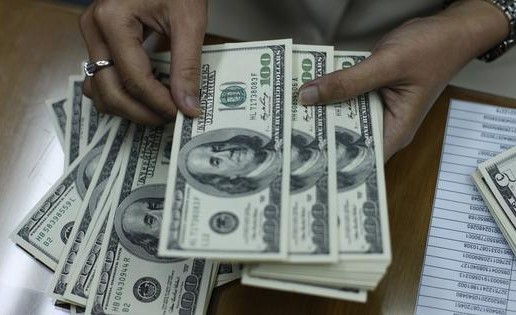Frequently Asked Questions: Stimulus Checks and Unemployment Benefits Explained

The Senate recently passed a $2 trillion economic rescue plan on Wednesday in a unanimous vote. The stimulus package aims to aid tens of millions of Americans as industries are brought to a halt by COVID-19.
The stimulus package includes payments to individuals, unemployment benefits, student loans, and retirement rules, among many others. Here are the answers to frequently asked questions about what is included in the bill.
Stimulus Payments
How much would the payments be?
The payment amount would largely depend on your income. Most would receive $1,200 while some would get less. An additional $500 will be given for every qualifying child who is aged 16 or below.
Single adults who earn an adjusted gross income of $75,000 or less are eligible to receive the full amount.
Married couples with no children will receive $2,400 if they are found to be earning $150,000 or less. Taxpayers who have filed as the head of households and earn $112,500 or less will receive the full amount.
The payment decreases as income figures increase. Unmarried people earning $99,000 and married couples with no children and are earning $198,000 are not eligible to receive the payment. Families with two children and an income surpassing $218,000 are also ineligible.
You can calculate how much you'll get from the coronavirus checks here.
Will there be more payments?
There is currently only one payment, however, future bills could order up additional checks.
Are college students eligible to receive payments?
College students who are filed as a dependent on a tax return will not receive payments.
A student under the age of 24 is considered dependent so long as a parent pays for half of their expenses.
Where will they look to determine the amount of payment?
Authorities will be looking at your income from 2019. Those who have yet to file a tax return can use the 2018 return. If that is also unavailable, a 2019 Social Security statement showing your income can be used.
Where do I apply to receive the payment?
There is no need to apply for the check. The IRS would transfer the money via direct deposit or a physical check.
When will the check arrive?
Treasure Secretary Steven Mnuchin expects most people to receive their payments within three weeks. Those whose payments have been sent will receive a paper notice in the mail in a few weeks. If you couldn't locate the payment upon receiving the notice, it is advised to get in touch with the IRS using the information on the paper.
Would retired workers, veterans, unemployed workers, and people who are receiving disability payments receive a stimulus payment?
Yes.
Unemployment Benefits
Who are eligible to receive benefits?
The new bill was expanded to cover self-employed people and those who work on an hourly basis.
How much will I get?
The bill expanded benefits received by eligible people in hopes it could temporarily replace the average worker's paycheck. The amount will largely depend on your state.
Eligible workers will receive $600 every week as well as their state benefits. Alabama has set a maximum weekly benefit of $275. California will distribute $450 weekly, and residents of New Jersey will get $713.
Whether the payment is sent in one payment or separately depends on the state's decision.
Are independent contractors eligible?
Yes. Freelancers and gig workers will also receive unemployment benefits. The payment amount would be calculated based on an individual's previous income. The federal government will provide weekly benefits to self-employed workers.
What if I, or a family member, is infected with COVID-19?
People who have been unemployed, partly unemployed, or cannot work due to self-quarantine, suffering symptoms or caring for a family member will still be eligible to received unemployment benefits.
Those who rely on school or another facility to care for a child or an elderly family member would be covered with the unemployment check.
Who is not eligible to receive unemployment benefits?
Workers who have the option of working from home, as well as those receiving sick leave or paid family leave will not receive unemployment benefits. New entrants to the workforce are also not covered by the expanded bill.
How long will the payments cover?
Some states provide 26 weeks of benefits while some have less. The expanded bill will give all eligible workers an additional 13 weeks of coverage. However, the total amount should not extend beyond 39 weeks.
Subscribe to Latin Post!
Sign up for our free newsletter for the Latest coverage!

















